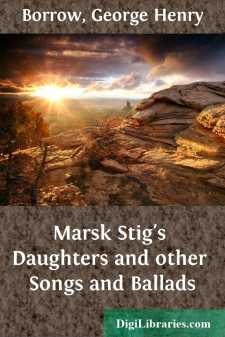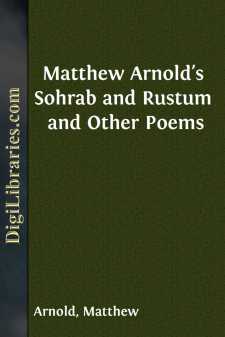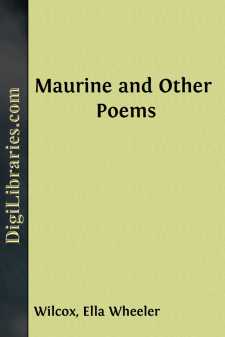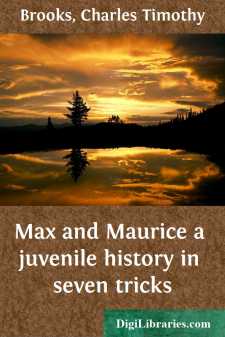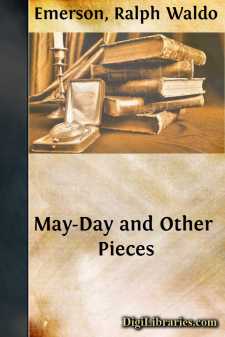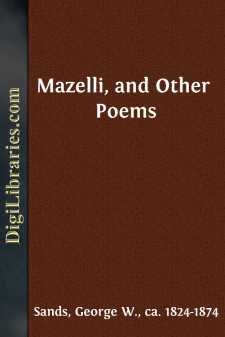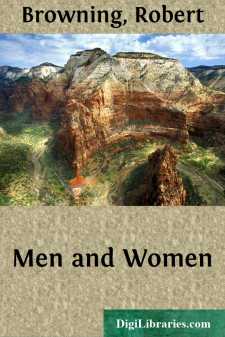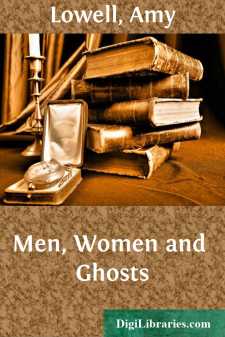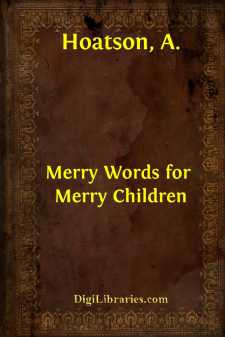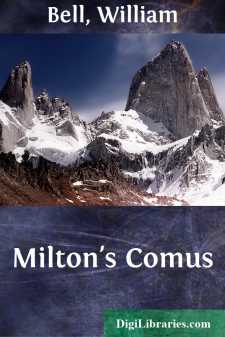Poetry Books
Sort by:
MARSK STIG’S DAUGHTERS Two daughters fair the Marshal had,O grievous was their fate and sad. The eldest she took her sister’s handAnd away they went to Sweden’s land. Home from the Stevn King Byrgye rode;Up to him Marsk Stig’s daughters trode. “What women ye who beset my gate?What brings ye hither at eve so late?” “Daughters of Stig, the Marshal brave,So earnestly thee for help we...
more...
by:
Matthew Arnold
INTRODUCTION A SHORT LIFE OF ARNOLD Matthew Arnold, poet and critic, was born in the village of Laleham,Middlesex County, England, December 24, 1822. He was the son of Dr.Thomas Arnold, best remembered as the great Head Master at Rugby andin later years distinguished also as a historian of Rome, and of MaryPenrose Arnold, a woman of remarkable character and intellect. Devoid of stirring incident, and,...
more...
MAURINE PART I.I sat and sewed, and sang some tender tune,Oh, beauteous was that morn in early June!Mellow with sunlight, and with blossoms fair:The climbing roseÐÑвâ¬вÐÂtree grew about me there,And checked with shade the sunny porticoWhere, morns like this, I came to read, or sew. I heard the gate click, and a firm quick treadUpon the walk. No need to turn my head;I would...
more...
MAX AND MAURICE. PREFACE.Ah, how oft we read or hear ofBoys we almost stand in fear of!For example, take these storiesOf two youths, named Max and Maurice,Who, instead of early turningTheir young minds to useful learning,Often leered with horrid featuresAt their lessons and their teachers.Look now at the empty head: heIs for mischief always ready.Teasing creatures, climbing fences,Stealing apples,...
more...
MAY-DAY. Daughter of Heaven and Earth, coy Spring,With sudden passion languishing,Maketh all things softly smile,Painteth pictures mile on mile,Holds a cup with cowslip-wreaths,Whence a smokeless incense breathes.Girls are peeling the sweet willow,Poplar white, and Gilead-tree,And troops of boysShouting with whoop and hilloa,And hip, hip three times three.The air is full of whistlings bland;What...
more...
by:
George W. Sands
MAZELLI Canto I. I. "Stay, traveller, stay thy weary steed,The sultry hour of noon is near,Of rest thy way-worn limbs have need,Stay, then, and, taste its sweetness here.The mountain path which thou hast spedIs steep, and difficult to tread,And many a farther step 'twill cost,Ere thou wilt find another host;But if thou scorn'st not humble fare,Such as the pilgrim loves to share,—Not...
more...
by:
Robert Browning
INTRODUCTION Thirteen years after the publication, in 1855, of the Poems, in two volumes, entitled "Men and Women," Browning reviewed his work and made an interesting reclassification of it. He separated the simpler pieces of a lyric or epic cast—such rhymed presentations of an emotional moment, for example, as "Mesmerism" and "A Woman's Last Word," or the picturesque...
more...
by:
Amy Lowell
This is a book of stories. For that reason I have excluded all purely lyrical poems. But the word "stories" has been stretched to its fullest application. It includes both narrative poems, properly so called; tales divided into scenes; and a few pieces of less obvious story-telling import in which one might say that the dramatis personae are air, clouds, trees, houses, streets, and such like...
more...
by:
A. Hoatson
JIM was a boy who was fond of clowns,And thought they were excellent fun;He talked so much of them and their ways,That one night he dreamed he was one. He dreamed he was feeding five fat geeseOn boiled slate-pencils and rice:He said it was wholesome food for geese,But they said, “More wholesome than nice.” HE dreamed that he set two geese to dance,While he took a fiddle and played.He said, “You...
more...
by:
William Bell
INTRODUCTION. Few poems have been more variously designated than Comus. Milton himself describes it simply as “A Mask”; by others it has been criticised and estimated as a lyrical drama, a drama in the epic style, a lyric poem in the form of a play, a phantasy, an allegory, a philosophical poem, a suite of speeches or majestic soliloquies, and even a didactic poem. Such variety in the description...
more...


